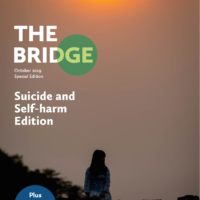emotional dysregulation
-

Dialectical Behaviour Therapy for Adolescents (DBT-A)
EARLY BIRD! This interactive workshop, led by Dr. Jake Camp, Senior Clinical Psychologist, DBT Therapist, and Clinical Academic Fellow, will provide an overview of the DBT-A model, including its theoretical foundations, core principles, and the structure and modes of delivery. Attendees will learn how DBT-A addresses the developmental needs of adolescents, and how parents/carers are engaged as partners in the intervention.
- Event type
- Workshop
- Location
- Online
-

Lost sleep contributes to mood disturbances in teens with ADHD
Stephen Becker and colleagues at Cincinnati Children’s Hospital Medical Center show that short sleep duration is a causal contributor to affect and mood disturbances in teenagers with ADHD.
Read more -

Do the same mechanisms drive social anxiety in autistic and neurotypical adolescents?
Researchers at King’s College London have recently published data on how cognitive, emotional and sensory factors are associated with social anxiety in adolescents with autism.
Read more -

Should emotion dysregulation be considered a core component of ADHD?
New data from researchers in the USA suggest that emotion dysregulation should be included as a core component of attention-deficit/hyperactivity disorder (ADHD) rather than viewed as comorbidity.
Read more -

Emotional impulsivity and deficient emotional self-regulation might be core symptoms of ADHD
A large proportion of children with attention-deficit/hyperactivity disorder (ADHD) exhibit notable emotion-related problems (or “emotional symptoms”). These emotional symptoms seem to associate with poor quality of life, impaired social adjustment and reduced marital status.
Read more -

Suicide and Self-Harm Special Edition
The National Confidential Enquiry into Suicide and Safety in Mental Health Annual Report (2018) highlighted that suicide in the under 20’s is rising generally and that the number of suicides rises towards late teens.
Read more -

DBT is effective for youth with high levels of emotion dysregulation
In 2019, Molly Adrian and colleagues examined the predictors and moderators of treatment outcomes for suicidal adolescents who participated in a randomized controlled trial evaluating Dialectical Behaviour Therapy (DBT) versus Individual/Group Supportive Therapy (IGST).
Read more -

Self-harm & Suicide
Self-harm is an increasingly recognised phenomenon and one of the strongest predictors of suicide, which continues to be one of the leading causes of death in young people worldwide. Self-harm can take many forms and may present with or without suicidal intent and both in the context of mental disorder, and without.
Read more -

Detaching RAD from DSED: the rationale and research requirements
In order to view this content, you need to be an ACAMH member. Membership starts from just 11p a day. We hope you consider joining and being part of the advancement of child and adolescent mental health.Read moreCurrent members will need to be registered as a website user and log in, our guide to this simple process can be accessed here.